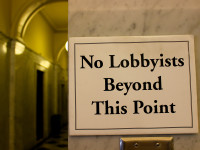This week’s Law Bytes podcast departs from the typical approach as this past week was anything but typical. As readers of this blog will know, last week I obtained access to hundreds of previously secret submissions to the government’s online harms consultation. Those submissions cast the process in a new light. This week’s Law Bytes podcast explains why the online harms consultation was a transparency and policy failure, walking through what has happened, what we know now, and how this fits within the broader Internet regulation agenda of the Canadian government.
Post Tagged with: "rodriguez"
Not an Outlier: What the Government’s Online Harms Secrecy Debacle Says About Its Internet Regulation Plans
My post on the hundreds of submissions to the government’s online harms consultation has garnered significant attention, including a front page news story from the Globe and Mail (I was also pleased to appear on Evan Solomon’s show and the Dean Blundell podcast). The coverage has rightly focused on previously secret submissions such as those from Twitter likening the Canadian plan to China or North Korea and the National Council of Canadian Muslims, who warn that the legislation would have risked constituting “one of the most significant assaults on marginalized and racialized communities in years.” If you haven’t read it, please read my post summarizing some of the key findings or access the entire package that was obtained under the Access to Information Act.
The Rest of the Online Harms Consultation Story: Canadian Heritage Forced to Release Hundreds of Public Submissions Under Access to Information Law
For months, the results of the government’s online harms consultation was shrouded in secrecy as the Canadian Heritage refused to disclose the hundreds of submissions it received. I launched a page that featured publicly available submissions (links reposted below), including 25 submissions from organizations and companies as well as six individual expert submissions. I later followed up with two posts that provided further details on the publicly available submissions (here and here). Earlier this year, Canadian Heritage Minister Pablo Rodriguez released a “what we heard” report that again blocked making the actual submissions public, but provided a summary that left little doubt that the government’s plans were widely criticized and required a policy reset.
In the meantime, I filed an Access to Information Act request to compel disclosure by law of the consultation submissions. It took many months, but this week the department released the results. While some submissions may be excluded – third parties can object on certain grounds – I have obtained hundreds of additional submissions in a 1,162 page file. These can be obtained directly from Canadian Heritage by launching an informal access request at no cost with the department. The file to request is A-2021-00174 (or click here for the full file for the moment).
Spiking Op-Eds: How the Government’s Online News Act is Already Leading to Media Self-Censorship
Last week, Canadian Heritage Minister Pablo Rodriguez introduced Bill C-18, the Online News Act, a bill that adopts an extreme approach to compensation by requiring payments for merely facilitating access to news in any way and in any amount. As a result, the Canadian government envisions mandated payments not only for copying or reproducing the news or for directly linking to news articles, but also for general links to news sites. But the concerns with Bill C-18 do not end there. The bill threatens press independence in two important respects.











